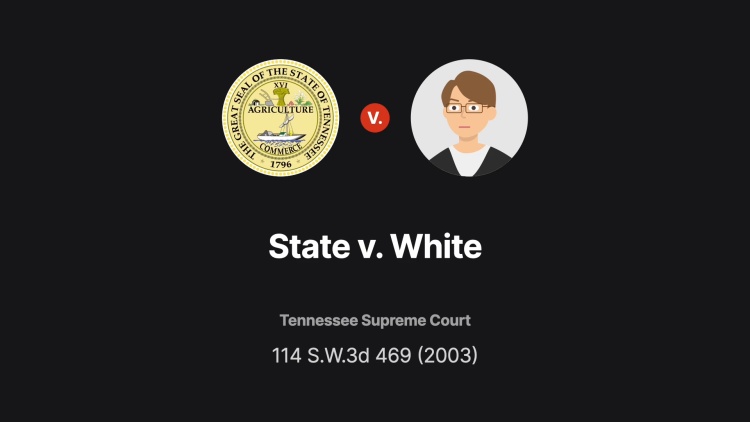State v. White
Tennessee Supreme Court
114 S.W.3d 469 (2003)
- Written by Samantha Arena, JD
Facts
Jeremy White was indicted for criminal offenses by a Shelby County grand jury. White retained attorney Mark McDaniel (defendant) to defend him. During the time McDaniel was acting as defense counsel for White, McDaniel was also serving as a part-time prosecutor in Shelby County, tasked with prosecuting municipal violations, as well as assistant district attorney general, with the power to prosecute state criminal-law violations. In 2001, the Board of Professional Responsibility for the State of Tennessee issued an advisory opinion concluding that an attorney’s simultaneous status as an assistant district attorney general and defense counsel in the same area was unethical because a prosecutor’s duties to the public are necessarily conflicting with the duties a defense counsel owes to his client, and such conflict cannot be waived by the public. The State of Tennessee (plaintiff) moved to disqualify McDaniel from representing White. McDaniel contended that he was sufficiently detached from the Shelby County District Attorney’s Office so as to continue as White’s counsel with no conflict of interest. White testified that he agreed to waive any conflicts of interest. The trial court determined that McDaniel’s dual roles gave rise to at least a perceived conflict of interest that could not be waived without the state’s consent. The court of criminal appeals affirmed, but held that the conflict was actual rather than perceived. McDaniel appealed.
Rule of Law
Issue
Holding and Reasoning (Anderson, J.)
What to do next…
Here's why 907,000 law students have relied on our case briefs:
- Written by law professors and practitioners, not other law students. 47,100 briefs, keyed to 996 casebooks. Top-notch customer support.
- The right amount of information, includes the facts, issues, rule of law, holding and reasoning, and any concurrences and dissents.
- Access in your classes, works on your mobile and tablet. Massive library of related video lessons and high quality multiple-choice questions.
- Easy to use, uniform format for every case brief. Written in plain English, not in legalese. Our briefs summarize and simplify; they don’t just repeat the court’s language.





